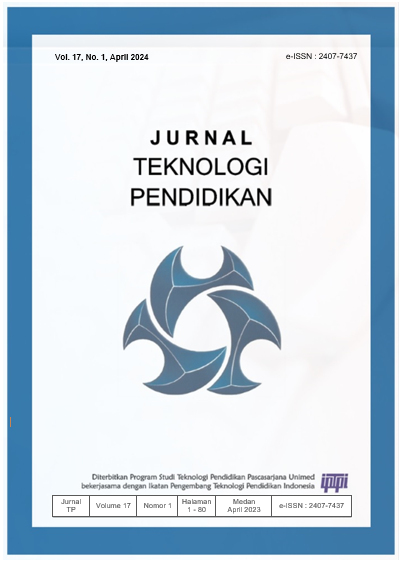PENGARUH DISTORSI KOGNITIF DAN ADVERSITY QUOTIENT TERHADAP KEMAMPUAN PEMECAHAN MASALAH PEMBELAJARAN AKUNTANSI (STUDI PADA PEMBELAJARAN BERBASIS OPEN EDUCATION RESOURCES)
DOI:
https://doi.org/10.24114/jtp.v17i1.57395Abstract
Abstract: Open Education Resources (OER) is one manifestation of the development of learning media in the modern era, open learning resources aimed at improving the quality of education and facilitating the learning process. OER-based accounting learning is expected to enable students to independently solve accounting course problems. The method used in this research is correlational with a quantitative approach. Subject sampling is done using the proportionate random sampling technique. The instruments used are questionnaires and test questions. Questionnaires are used to measure cognitive distortions and adversity quotient. Prerequisite testing of data analysis includes normality and linearity tests. Meanwhile, hypothesis testing involves testing the significance of correlation coefficient with t-test and F-test. The results of this research indicate that there is a negative and significant influence between cognitive distortion and problem-solving abilities in accounting learning based on open education resources, but there is a positive and non-significant influence between adversity quotient and problem-solving abilities in accounting learning based on open education resources. Keywords:. cognitive distortion, adversity quotient and accounting problem-solving Abstrak: Open Education Resources (OER) adalah salah satu wujud dari perkembangan media pembelajaran di era modern, sumber pembelajaran terbuka bertujuan meningkatkan mutu pendidikan dan memudahkan proses pembelajaran. Pembelajaran akuntansi berbasis OER diharapkan membuat mahasiswa belajar memecahkan permasalahan matakuliah akuntansi secara mandiri. Metode yang digunakan pada penelitian ini yaitu metode korelasional dengan pendekatan kuantitatif. Pengambilan subjek menggunakan teknik proportionate random sampling. Instrumen yang digunakan adalah angket dan soal tes. Angket digunakan untuk mengukur distorsi kognitif, adversity quotient. Pengujian prasyarat analisis data yang digunakan uji normalitas dan uji linearitas. Sedangkan pengujian hipotesis yang digunakan uji signifikansi koefisien korelasi dengan uji t dan uji F. Hasil penelitian ini menunjukkan bahwa Terdapat pengaruh negatif dan signifikan antara distorsi kognitif terhadap kemampuan pemecahan masalah pembelajaran akuntansi berbasis open education resources tetapi pengaruh positif dan tidak signifikan antara adversity quotient terhadap kemampuan pemecahan masalah pembelajaran akuntansi berbasis open education resources. Kata Kunci: distorsi kognitif, adversity quotient, pemecahan masalah akuntansi.References
Butler, A. C., & Beck, J. S. (2000). Cognitive therapy outcomes: A review of meta analyses. Journal of the Norwegian Psychological Association, 37, 1-9.
Fischback, L. J. (2018). Exploring the moderating effect of cognitive autonomy on the relationship between cognitive distortions and youth's externalizing behaviors. Doctoral dissertation, Utah State Universit.
Ghufron, M.N. & Risnawita, R.S. (2016). Teori-teori Psikologi. Yogjakarta: Ar-Ruzz Media
Hosseini, M., & M, S. (2019). Evaluation of meaning in life and cognitive distortions among university students. 12(50).
Prayoga, Wanda D . 2014. Hubungan Distorsi Kognitif Dengan Kemampuan Penyelesaian Masalah Pada Remaja. http://eprints.umm.ac.id/id/eprint/26242Behaviour modivication. (2007). Diakses pada 5 Februari 2009, dari http://www.educationalpsycologist.org.uk/behaviour.html
Rukmana, I., Hasbi, M., & Paloloang, B. (2016). Hubungan adversity quotient dengan hasil belajar matematika siswa kelas XI SMA Negeri Model Terpadu Madani Palu. Jurnal Elektronik Pendidikan Matematika Tadulako, 3(3), 325-333.
Stoltz, P.G. (2000). Adversity Quotient: Mengubah Hambatan Menjadi Peluang. Terjemahan: T. Hermaya. Jakarta: Gramedia Widiasarana Indonesia.
Sugiyono.( 2013). Metode Penelitian Pendidikan. Bandung: Alfabeta
Downloads
Published
How to Cite
Issue
Section
License
Copyright (c) 2024 Jurnal Teknologi Pendidikan (JTP)

This work is licensed under a Creative Commons Attribution 4.0 International License.

Jurnal Teknologi Pendidikan (JTP) is licensed under a Lisensi Creative Commons Atribusi 4.0 Internasional.




